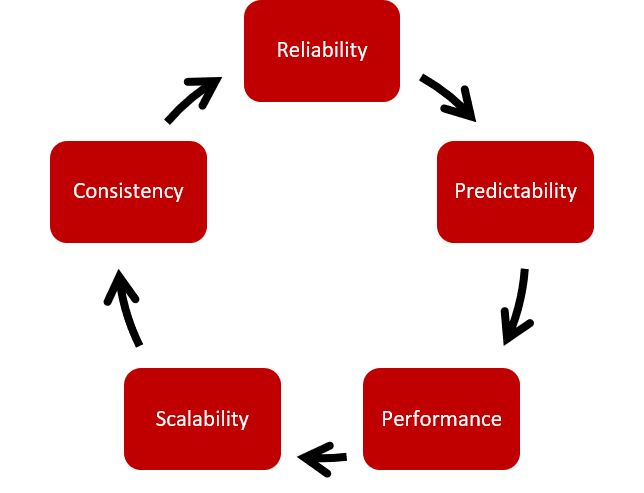- Filter by
- Categories
- Tags
- Authors
- Show all
- All
- #assessment
- #automotivespice
- #career
- #softskill
- #trainee
- #training
- 11.001.09
- 11.001.11
- 11.001.12
- 11.002.02
- 11.003.02
- 11.004.07
- 11.004.08
- 11.006.02
- 12.003.02
- 12.004.02
- 14.001.02
- 15.003.02
- 16.001.01
- 16.001.02
- AGILE
- Agile SPICE
- ASPICE
- ASPICE ADD-ON
- ASPICE Guide
- ASPICE™ Training
- Automotive Functional Safety (ISO 26262)
- Automotive Innovation Summit Conference 2018
- Automotive SPICE
- Automotive SPICE Provisional Assessor
- Automotive SPICE™ Assessment
- Automotive SPICE™(ASPICE)
- Automotive-Innovation-Summit-Conference
- complexity
- development process
- Europe
- framework
- Hardware Engineering SPICE
- HIS
- Introduction VDA Automotive SPICE Guideline
- Mechanical Engineering SPICE
- MISRA
- platform
- quality
- Software Development
- software engineering
- software metrics
- Software Platform
- software quality
- Software Reuse
2019-03-22
Published by Achim Gerber
When a company considers implementing the ASPICE model, usually one question pop-up: can we achieve a return on investment? In this blog post, we examine the topic of ASPICE training ROI. Firstly, let’s talk about the costs of implementing ASPICE. When planning our project, we need to take into account that training costs are much more than the price of traveling, training and the exam/certification fees. Quite often the critical -hidden- costs are the time spent on training and the missing support and achievements in the projects during that time. In general, at any time there seem to be good reasons for postponing an Automotive SPICE® training due to budgetary or workload reasons. But working under this model does have a long list of benefits and is entirely possible to achieve a return on investment in the short or the mid-term.
Do you like it?
2019-05-19
Published by Achim Gerber
Your company has decided to benefit by applying Automotive SPICE® in the development of software-controlled systems? There are many possible motivations for the decision to implement ASPICE including (e.g.) customer expectation, quality improvement, reduction of risks and costs, and improved management of growing complexity. Whatever your primary motivation may be, there are a number of things that must be considered. One factor that often dominates is the choice of the right external consulting and support.
Do you like it?
2019-05-19
Published by Achim Gerber
In the last few months I have been investigating real-time systems and the conflict between two major approaches that are used. These confrontations have caused me to think more deeply about the concept of time-triggered systems and I am beginning to view this as a significant and valuable paradigm shift when compared with my earlier understanding.In order to set the stage properly, we need to start with an understanding of the concept of “real-time”. In this article I will be using “real-time” as a synonym for “deterministic”. This will require that every action that is performed in a real-time system must be done at the required moment (within predetermined margins of error and with a predetermined maximum level of uncertainty, aka jitter).
Do you like it?
2019-06-10
Published by Achim Gerber
Software quality is often treated as an elusive and mysterious goal. Everybody wishes to have it and the strategies for achieving quality are as varied as the companies that claim it. Interestingly enough, very few people are able to provide a clear statement of what software quality is. In my humble opinion this is the crux of the problem, how can a goal be achieved which isn’t clearly defined?
There are actually a multitude of software quality definitions that can be found. As so often, Wikipedia provides an interesting starting point for study. The pragmatic difficulty with many definitions of quality is that they are qualitative descriptions and are strongly dependent on the observer’s viewpoint. A pragmatically useful definition of software quality must be objective, reproducible and must deliver quantitative results.
Do you like it?
2019-08-29
Published by Achim Gerber
The open source world is full of frameworks and platforms. But what is a framework, what is a platform and what is the difference? More to the point, why is this difference important? I am a confessing pedant. Despite my personal failures in this regard, I believe deeply that correct usage of language provides significant added value. To quote the aphorism from Mark Twain: “The difference between the almost right word and the right word is really a large matter. ’tis the difference between the lightning bug and the lightning.” With this in mind, it may make sense that I find the lack of clarity surrounding the two concepts of framework and platform extremely irritating at times. Every company in the world that has anything to do with development has a platform. The open source world is full of frameworks. But when asked, very few people are able to define these concepts. Is it possible to claim full understanding of a subject yet be unable to provide clear definitions for basic terminology?
Do you like it?






